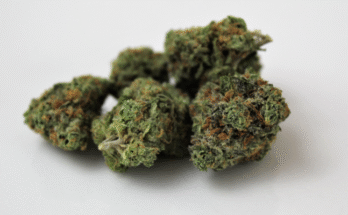With roots in traditional Chinese medicine, lion’s mane mushroom has been used for centuries to treat a wide range of ailments.
Nowadays, human and animal studies are starting to explain many of the health benefits lion’s mane has to offer.
Here are 10 profound ways lion’s mane can enhance your health…
1. Improving Mood
Lions mane has long been reported to improve mood and provide balance, especially in those suffering from depression. In 2010, researchers examined the effects of lion’s mane mushroom on 30 women over a four-week period.
During this period participants were either given lions mane cookies or placebo cookies. At the end of the four weeks, the lion’s mane mushroom group reported a significant improvement in mood.
Whilst this is a small study, these findings still complement a growing body of evidence that suggest Lions Mane is great natural treatment option for those wanting to feel more balanced.

2. Boosts immune system
A weak immune system puts the body at risk from developing infectious diseases such as Covid-19 or influenza. Luckily, Lion’s mane can help strengthen you immune system and leave you less vulnerable.
Animal research shows that lion’s mane mushroom can boost immunity by increasing the activity of the intestinal immune system, which protects the body from pathogens that enter the gut through the mouth or nose.
One study even found that supplementing with lion’s mane extract daily nearly quadrupled the lifespan of mice injected with a lethal dose of salmonella bacteria.
3. Reduces Inflammation and Oxidative Stress
Chronic inflammation and oxidative stress are believed to be at the root of many major illnesses such as heart disease and cancer. Multiple research studies have shown lion’s mane mushrooms to contain powerful anti-inflammatory and antioxidant compounds which may help reduce the impact of these illnesses.
Several animal studies have found that lion’s mane extract reduced markers of inflammation and oxidative stress in rodents and may be especially useful in the management of inflammatory bowel disease, liver damage and stroke.
4. Improving Focus
Treating inflammation can also have an indirect effect on focus too. Reduced inflammation improves blood flow, which provides your brain with more oxygen.
The side effect of more oxygen is better brain performance. The antioxidants in lion’s mane may also help promote learning and memory, possibly by strengthening your brain cells and stimulating the growth of new neurons.
5. Protects the brain and memory
Lion’s mane mushroom and its extracts have been shown to reduce memory loss in mice. It also prevents neuronal damage caused by amyloid-beta plaques, which build up in the brain during Alzheimer’s disease.
While no studies have analysed whether lion’s mane mushroom is beneficial for Alzheimer’s disease in humans, it appears likely to boost mental functioning.
A study in adults with cognitive impairment found that consuming 3g of lion’s mane mushroom daily for four months significantly improved mental functioning. Furthermore, these benefits disappeared when supplementation stopped.
Lion’s mane ability to promote nerve growth and protect the brain from Alzheimer’s-related damage may explain its beneficial effects on brain health.

6. Speeds up recovery from nervous system injuries
Injuries to the nervous system, such as brain or spinal cord injuries, can be life-changing. They often cause paralysis or loss of mental functions. Research has found that lion’s mane mushroom may help speed recovery in central nervous system injuries.
It is thought to do this by stimulating the growth and repair of nerve cells. In one study, Lion’s mane mushroom extract has been shown to reduce recovery time by 23–41% when given to rats with nervous system injuries
Lion’s mane extract may also help reduce the severity of brain damage after a stroke. For example, another study conducted in 2010 found high doses of Lions Mane given to rats immediately after suffering from a stroke helped reduce both inflammation and the size of the brain-related injury by an average of 44%.
7. Reduces heart disease risk and obesity
Factors such as obesity, high triglycerides, large amounts of oxidized cholesterol, and an increased tendency to get blood clots all increase your risk of heart disease. Research shows that lion’s mane extract can influence some of these factors and reduce the risk of heart disease.
Studies in rats and mice have found that lion’s mane mushroom extract improves fat metabolism and lowers triglyceride levels. In fact, one study in rats fed a high-fat diet and given daily doses of lion’s mane extract observed 27% lower triglyceride levels and 42% less weight gain after 28 days.
8. Help manage blood sugar levels
Lion’s mane mushroom may be beneficial for diabetes management by improving blood sugar control and reducing some of these side effects. Several animal studies have shown that lion’s mane can cause significantly lower blood sugar levels in both normal and diabetic mice, even low dosages.
Furthermore, in mice with diabetic nerve damage, six weeks of daily lion’s mushroom extract significantly reduced pain, lowered blood sugar levels and increased antioxidant levels.
Lion’s mane mushroom shows potential as a therapeutic supplement for diabetes, but more research is needed to determine exactly how it might be used in humans.
9. May help fight cancer
Some research suggests that lion’s mane’s unique qualities may have cancer-fighting abilities.
For example, one study found that when lion’s mane extract is mixed with human cancer cells in a test tube, they cause the cancer cells to die at a faster rate. This has been demonstrated with several types of cancer cells, including liver, colon, stomach and blood cancer cells.
In addition to killing cancer cells, lion’s mane extract has also been shown to slow the spread of cancer. One study in mice with colon cancer found that taking lion’s mane extract reduced the spread of cancer to the lungs by 69%.
Another study found that lion’s mane extract was more effective than traditional cancer medications at slowing tumour growth in mice, in addition to having fewer side effects

10. Improve cognitive function and brain health
Several studies have demonstrated the powerful effect lion’s mane has on cognitive functioning. In 2008, a study found lion’s mane effectively improve cognitive function in older adults. Similarly, studies with rodents have found lion’s mane may potentially have protective effects on brain cells and could therefore improve memory and promote the creation of new neurons.
For example, in one study, memory impaired mice were fed a diet consisting of 5% dried lion’s mane mushroom. The results found the mice fed on the lion’s mane diet performed significantly better in a standard Y maze test – a standardised test to assess memory in rodents. Interestingly, the mice regained another cognitive capacity as measured by the curiosity they had towards exploring novel objects compared to familiar ones.
Animal studies show that lion’s mane mushroom extract may actually support brain health by stimulating the creation of two important compounds: nerve growth factor (NGF) and brain-derived neurotrophic factor (BDNF).
NGF and BDNF are proteins that stimulate the production of new cells and strengthen existing ones. NGF also plays an important role in forming myelin, the sheath around nerve cells that helps brain cells do their job. BDNF increases brain plasticity, which helps your brain cells stay resilient in the face of stress or aging.
Researchers believe that lion’s mane antioxidant activity neutralises free radicals, preventing them from causing inflammation or damaging your cells. On top of this, researchers have also found that hericenones and erinacines from the fruiting body and mycelium of lion’s mane easily cross the blood-brain barrier to stimulate NGF.
These important findings suggest that not only can lion’s mane slow cell degradation, but it could potentially reverse it.
Put simply, taking lions mane may help you improve brain functioning and also help reverse the effects of ageing.
Best lion’s mane in the UK
I started selling lion’s mane products at Mushies because I believe that mushrooms, particularly lion’s mane, can have a hugely positive effect on regular people.
One product I’m very proud of and use myself every day is our Lion’s Mane Extract. The extract is referred to as 8:1 because you need 8kg of raw lion’s mane mushroom to produce a single kilo of lions mane 8:1 extract.

It is alcohol based because hericenones and erinacines – the compounds considered to be responsible for the cognitive benefits of lion’s mane mushroom – are only soluble in ethanol.
In summary….
Research has found that lion’s mane may alleviate symptoms of depression, protect against dementia, reduce mild symptoms and help repair nerve damage.
It also has strong anti-inflammatory, antioxidant and immune-boosting abilities and been shown to lower the risk of cancer, heart disease and diabetes in animals.
However, while the current research is promising, many of the current studies have used mice and more human research is needed to confirm findings.
Overall, the potential health benefits of taking lion’s mane are huge. What’s more is that side effects are virtually unheard of – even at high doses.




